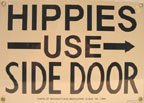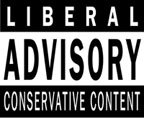The
New York Times is credibly reporting that in early 2002 (shortly after 9/11) President Bush signed an executive order authorizing the National Security Agency (NSA) to eavesdrop on international phone conversations placed by from within the United States. Aimed at monitoring thousands of suspect phone lines for terrorist communications, the authorization allowed the NSA to conduct this surveilance without a court order.
Clearly, this is a disturbing development. Constitutional protections against unreasonable searches are certainly being seriously tested here by what is, by any reasonable look, a broad net of surveilance. Without a court order, the only protections allowed U.S. citizens is the confidence in unknown bureaucrats not to abuse this special power to listen-in.
I am really torn on this issue.
We are at war. Not so much the Iraq war here is a concern, but the war against al Qaeda that has not ceased since 9/11. Better put, the war to defend ourselves from continuing efforts to attack the U.S. homeland. The threats involved here, the technologies, and the speed of response required are so out of alignment with the realities of the 18th century constitution that one has to do a reality check.
If we place protecting our comfortable sense of privacy and constitutional rights purity over very dire security issues, what price may we pay in the not so distant future. How many thousands of lives might be lost if we tie one hand behind the backs of our intelligence and security forces fighting to prevent domestic terrorism?
According to author James Bradford's best-selling
Body of Secrets and other sources, the NSA actually has been monitoring telephone, internet, fax, and other communications of U.S. citizens sent overseas for some time. The key distinction is that their targets were the overseas end of the connection. For instance, John Smith in Chicago calls someone in Madrid, Spain. The NSA could listen in on the Spanish side of the connection. This splitting of hairs effectively allowed the NSA to keep listening to international communications when U.S. citizens were involved.
The difference in the current controversy over the Bush executive order is that the NSA could target the U.S. side of the call, target U.S. citizens, and do so without a court order. The advantage of this for the NSA is that by monitoring outbound calls on particular U.S. suspects they can determine any number of international sites that a U.S. caller (potential terrorist) is calling. For instance, if John Smith in Chicago were calling his al Qaeda handler in Istanbul. This allows the NSA to find overseas bad guys faster and get information quicker.
Fine. This may be necessary. But how do we balance the potential for abuse.
I can't say that I'm completely comfortable with even a Bush Administration having this power and the potential for it to be abused for political, business, or personal purposes. When I think about how this could be used by a Clinton or Kerry administration to spy on political opponents, help compliant corporations spy on competitors as rewards for campaign contributions, blackmail, etc. then I get really nervous.
Where do we draw the line? Can we build in protections? I think its the lack of a court order to conduct the surveilance that gives me the most unease. While I understand that some judges would hamstring the NSA in very honest, credible surveilance work just to demonstrate their ACLU fitness, some level of oversight is certainly necessary.




















